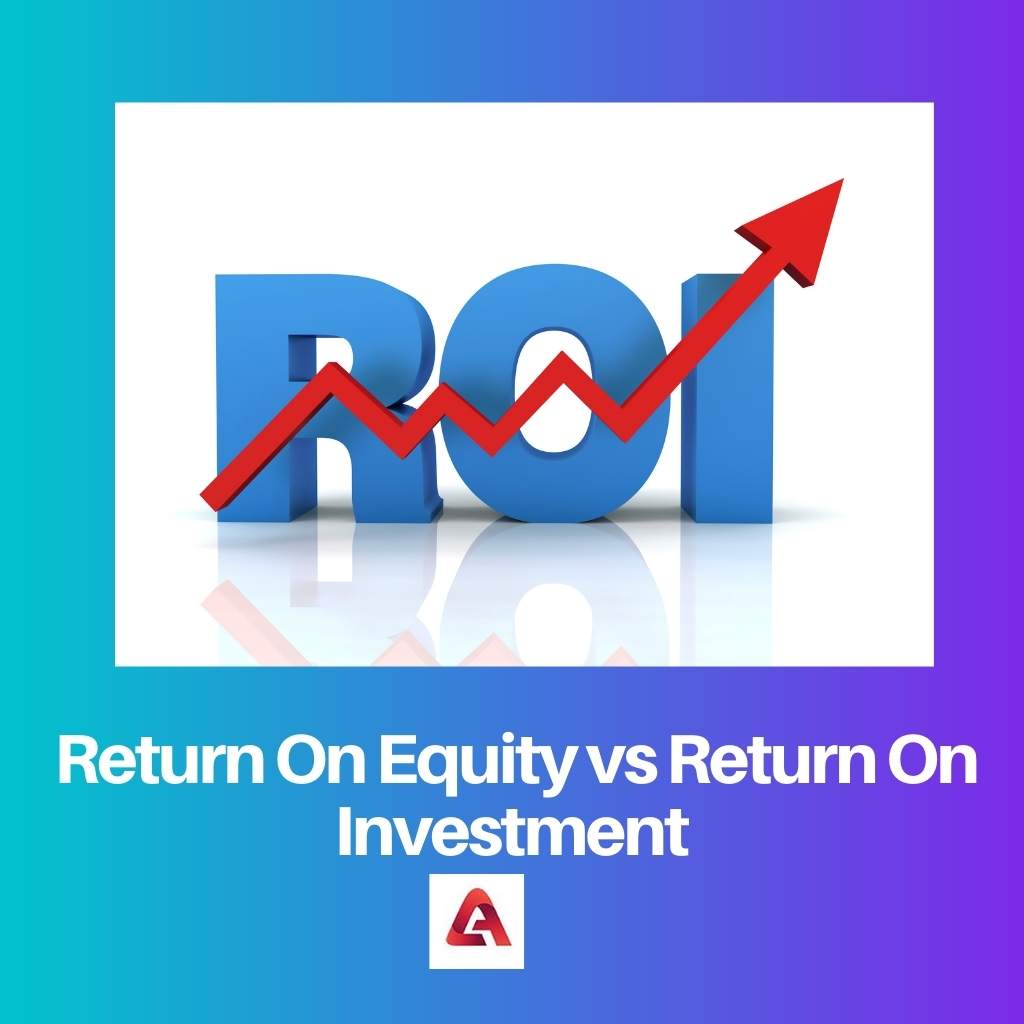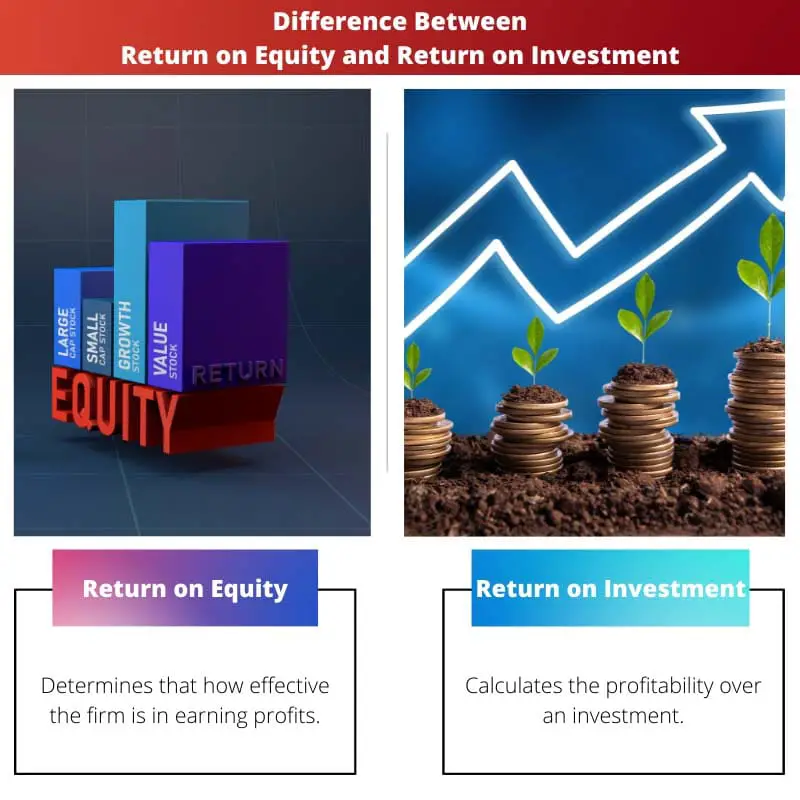The two terms, Return on Equity (ROE) and Return on Investment (ROI) belong to corporate finance and accounting. This sector controls the business activities, analyzes the profit and loss, ad helps to maximize the market production and shareholders’ value.
Both of these are very important for successful business planning. They look similar by their names but have different functions in practice. So here are a few differences between them.
Key Takeaways
- Return on Equity (ROE) measures the net income a company earns compared to its shareholder’s equity. In contrast, Return on Investment (ROI) measures the profits earned by a company concerning its overall investment.
- ROE is used to determine the efficiency of a company in generating profits for its shareholders, whereas ROI is used to determine the overall profitability of a company’s investments.
- ROE can be increased by taking on debt, whereas increasing ROI requires higher profits or reducing the cost of investments.
Return On Equity vs. Return On Investment
Return on equity is mainly used to distinguish the profit level of the companies from investments, whereas the return on investment focuses on the clearing profits of the firm. Return on equity provides an idea of profits from the stalk holders. On the other hand, the return on investment gives an idea of how much the investment was successful.

Return on Equity is the profit of a firm based on the shares issued by the company to the shareholders. This is useful to measure the company’s profit by giving several claims to the stalk holders.
Return on Investment is the measure to know how the company gains much profit after investing or at how much rate the investment is successful.
Comparison Table
| Parameters of Comparison | Return on Equity | Return on Investment |
|---|---|---|
| Definition | Determines how effective the firm is in earning profits | Calculates the profitability of an investment. |
| Debt factor | The debt factor does not have any role in the calculation. | The debt factor is taken into consideration. |
| Higher return effect | Higher Return on Equity shows excellent improvement in management. | A higher return on investment shows better profitability in investments. |
| Function | Provides an analysis of good management and corporate finance decision | Focuses only on the profit |
| For a loan from the company | Return on equity is higher than usual. | Return on investment is lower than usual. |
What is Return on Equity?
Return on Equity is the profit of a firm base on the shares issued by the company to the shareholders. This is useful to measure the company’s profit by giving several claims to the stalk holders. Return on equity can be calculated.
The formula to calculate return on equity is the net income or the profit of the company divided by the shareholder’s equity,
Return on equity provides a simple idea for evaluating the profits from the shareholder’s equity. On comparing the return on equity of the company with the Return on equity of the other industries, data analysis can be done about the firm’s future development. T
The return on equity is a two-port ratio meaning it provides information about the firm’s income and how much profit is earned from the shareholder’s equity.

What is Return on Investment?
Return on Investment is the measure to know how the company gains much profit after investing or at how much rate the investment is successful. It helps distinguish between a good and bad investment and provides a clear idea for the company’s future development.
From the formula, it is clear that if the company’s annual income increases, then the total capital invested by the company and the return on investment will grow. Return on investment is also calculated as a percentage.
This is more advantageous because of the easy calculation and elemental analysis of results. The return on investment considers the debt factor during calculation.

Main Differences Between Return on Equity and Return on Investment
- Return on Equity analyzes good management and corporate finance decisions, whereas Return on Investment focuses only on profit.
- When the company is running on a loan, the Return on equity is higher than usual, but the Return on investment is lower than average.

- https://books.google.com/books?hl=en&lr=&id=WROeaDUXOpkC&oi=fnd&pg=PA1&dq=return+on+investment&ots=YjS6J8kcV9&sig=2iSw2fY0MdZyuG7EBQr08EuA394
- https://www.sciencedirect.com/science/article/pii/S1877042815054580
Last Updated : 13 July, 2023

Chara Yadav holds MBA in Finance. Her goal is to simplify finance-related topics. She has worked in finance for about 25 years. She has held multiple finance and banking classes for business schools and communities. Read more at her bio page.

How greatful to see a well-written and clear explanation of these two concepts! I had been looking for information like this for a long time
I completely agree, this explanation was very helpful!
This article was indeed very informative